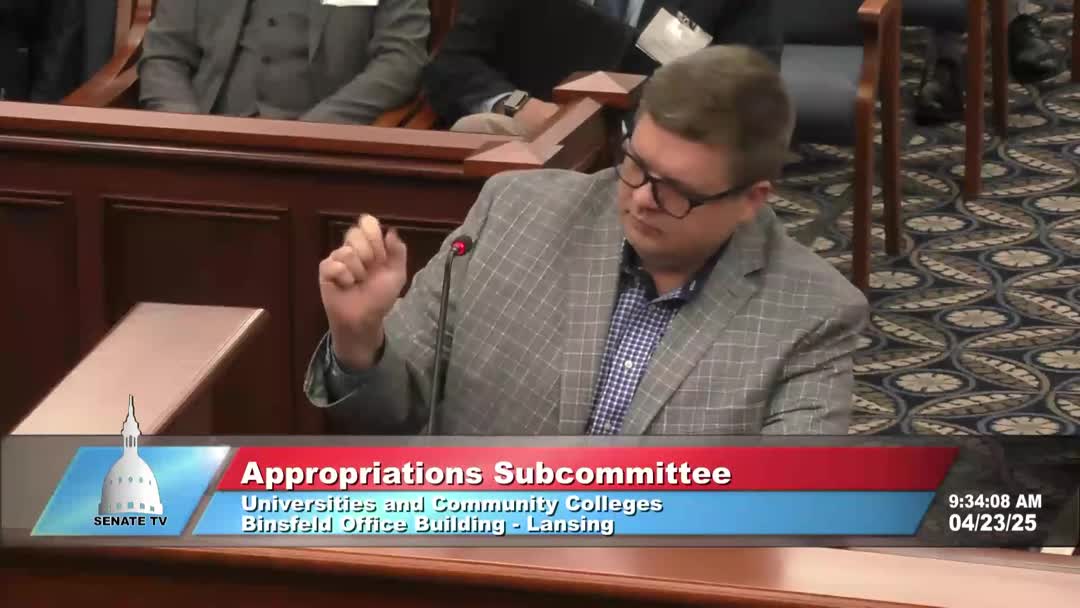College access group urges continued funding for FAFSA outreach, Reconnect and MyLEAP; flags AmeriCorps and federal changes as looming threats
Get AI-powered insights, summaries, and transcripts
Subscribe
Summary
Ryan Fuensbliss, executive director of the Michigan College Access Network, told the Senate subcommittee that state investments in financial aid and outreach — including Michigan Reconnect, the Michigan Achievement Scholarship, My LEAP and FAFSA outreach — have improved access, but federal changes and demographic shifts pose new risks.
Ryan Fuensbliss, executive director of the Michigan College Access Network (MCAN), told the Senate Appropriations Subcommittee that state investments in financial aid and college-access infrastructure have yielded substantial results, but he warned of demographic challenges and federal changes that could undermine that progress.
Fuensbliss highlighted several programmatic wins: the Michigan Reconnect program (including a temporary expansion for ages 21–24 that attracted about 30,000–35,000 signups), the Michigan Achievement Scholarship, the creation of a centralized state unit (My LEAP) to coordinate access and success work, and state-funded FAFSA outreach. He described the statewide “Ticket to Tuition” FAFSA incentive program funded in the budget: "Students who complete the FAFSA go to college," he said, explaining the lottery-style giveaway that will award 50 winners — 10 awards of $50,000 to 529 accounts and 40 awards of $10,000 to 529 accounts — to first-time FAFSA filers in Michigan.
Fuensbliss recommended continued budget support for financial aid programs, ongoing funding for My LEAP and student‑success grants, expansion of college‑in‑high‑school opportunities and dual‑enrollment funding reform, and continued appropriations for transfer and retention incentives. He said MCAN would like the temporary Reconnect eligibility change for 21–24 year olds codified to preserve that cohort’s access to aid.
He flagged federal risks: a reported functional reduction at the AmeriCorps agency could remove about $12 million in federal AmeriCorps funds that support advisors and other education roles in Michigan; changes at the U.S. Department of Education and the proposed reassignment of student loan servicing to the Small Business Administration also could create barriers that discourage students from pursuing college. "We're worried about what that looks like to move student loans over to an agency that just might not be big enough to handle it," Fuensbliss said.
Fuensbliss asked lawmakers to keep funding college‑access infrastructure — K‑12 counselors, higher‑education partners, My LEAP and community organizations — and to maintain financial aid funding levels in the FY26 budget. The subcommittee received the testimony; no formal committee action was taken at the hearing.
